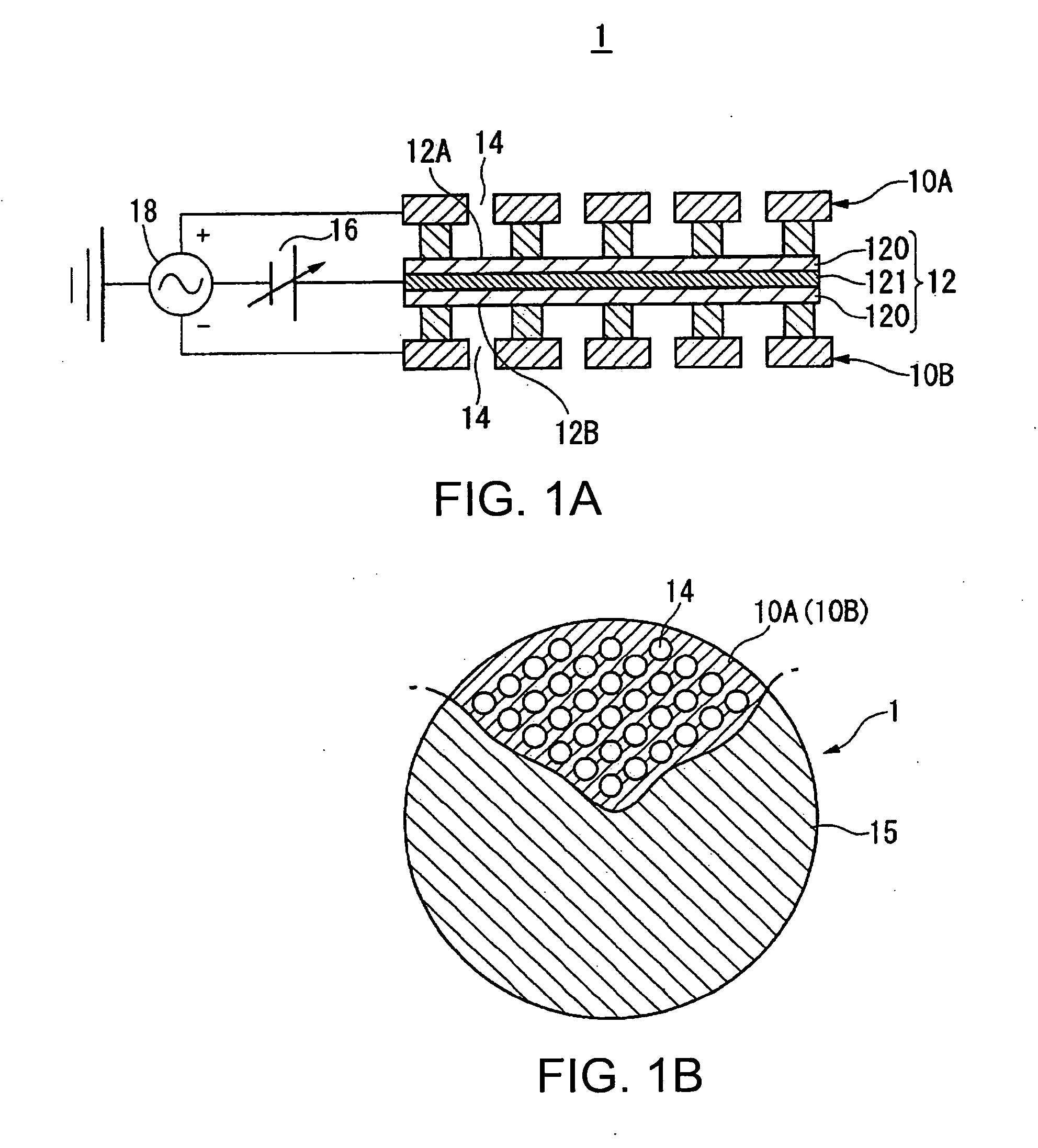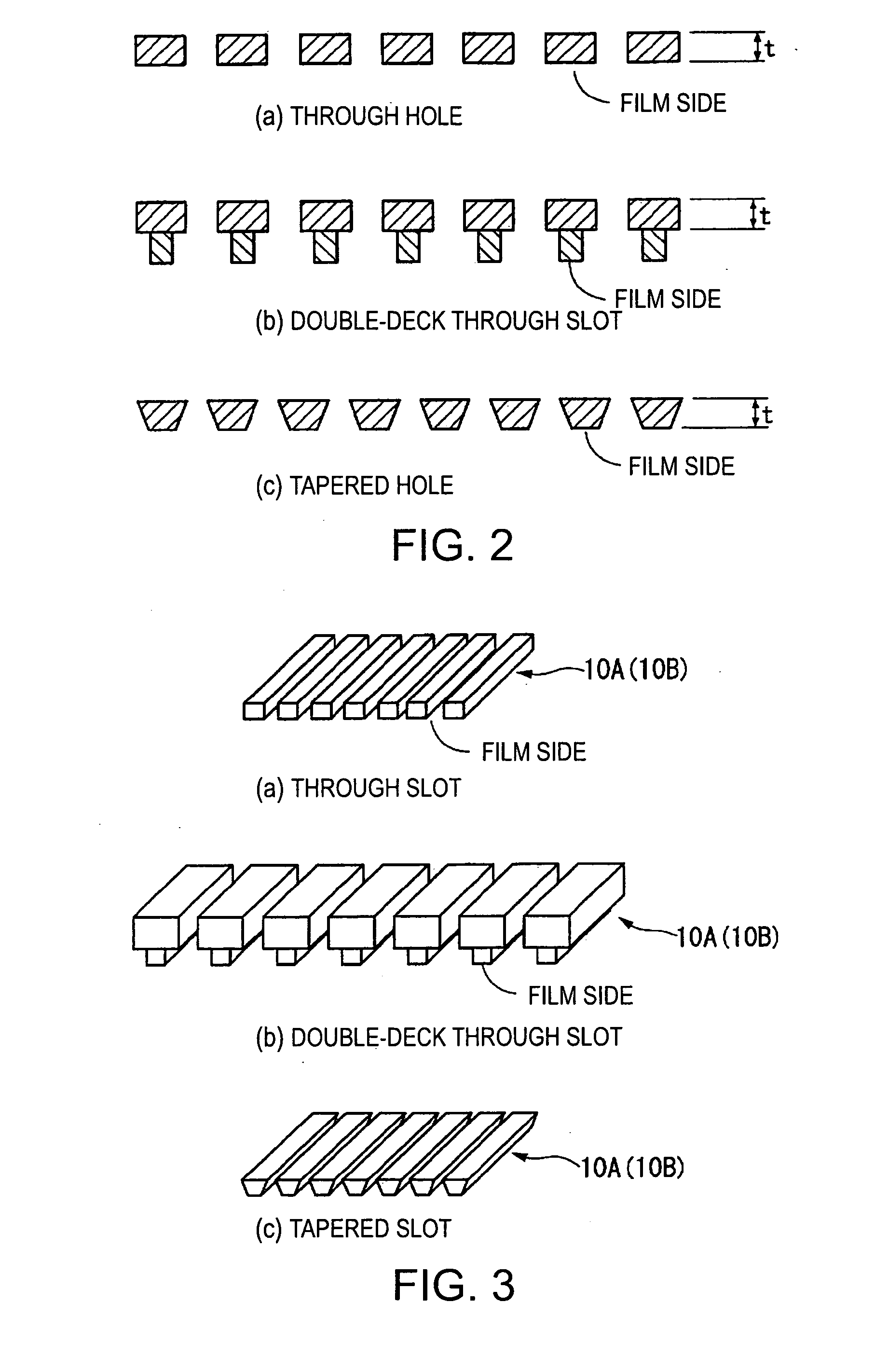Electrostatic ultrasonic transducer drive control method, electrostatic ultrasonic transducer, ultrasonic speaker using the same, audio signal reproduction method, ultra-directional acoustic system, and display device
a technology of electrostatic ultrasonic transducers and drive control methods, applied in the direction of transducers, piezoelectric/electrostrictive transducers, loudspeakers, etc., can solve the problems of difficult to achieve electrostatic ultrasonic transducers, difficult to perform faithful reproduction (demodulation) in such a wide band, etc., to improve electro-acoustic energy conversion efficiency
- Summary
- Abstract
- Description
- Claims
- Application Information
AI Technical Summary
Benefits of technology
Problems solved by technology
Method used
Image
Examples
first embodiment
[0181] In one embodiment (the first embodiment) of the invention, assuming, for example, that λ is the wavelength of the carrier wave having a frequency shifted as a predetermined amount of frequency from the resonance frequency, which becomes the mechanical resonance frequency of the vibration film 12 in the electrostatic ultrasonic transducer 1, it is configured that the thickness t of each of the pair of electrodes 10A, 10B becomes (λ / 4)·n or roughly (λ / 4)·n (where, λ is the wavelength of the ultrasonic wave, n is a positive odd number).
[0182] In the electrostatic ultrasonic transducer according to the invention composed of the above configuration, the plurality of through holes 14 is provided to the first electrode 10A and the second electrode 10B at positions where the first electrode 10A and the second electrode 10B face each other, and the alternating-current signal, which is the drive signal, is applied to the pair of electrodes composed of the first and the second electrode...
second embodiment
[0203] Now, a configuration of an ultrasonic transducer according to another embodiment of the invention will be shown in FIG. 9. The configuration of the ultrasonic transducer 55 according to the invention is the same as the configuration shown in FIG. 1 except that a sound reflecting plate is disposed on the rear face of the ultrasonic transducer. Specifically, the ultrasonic transducer 55 according to the present embodiment is a ultrasonic transducer provided with a pair of electrodes 10A, 10B each including conductive member formed of a conductive material which functions as an electrode, a vibration film 12 held between the pair of electrodes 10A, 10B, and including the conductive layer 121 to which a direct-current bias voltage is applied, and a member (not shown) for holding the pair of electrodes 10A, 10B, and the vibration film 12, the pair of electrodes 10A, 10B having the same and plural number of holes at positions opposing across the vibration film 12, and a alternating...
PUM
 Login to View More
Login to View More Abstract
Description
Claims
Application Information
 Login to View More
Login to View More - R&D
- Intellectual Property
- Life Sciences
- Materials
- Tech Scout
- Unparalleled Data Quality
- Higher Quality Content
- 60% Fewer Hallucinations
Browse by: Latest US Patents, China's latest patents, Technical Efficacy Thesaurus, Application Domain, Technology Topic, Popular Technical Reports.
© 2025 PatSnap. All rights reserved.Legal|Privacy policy|Modern Slavery Act Transparency Statement|Sitemap|About US| Contact US: help@patsnap.com



